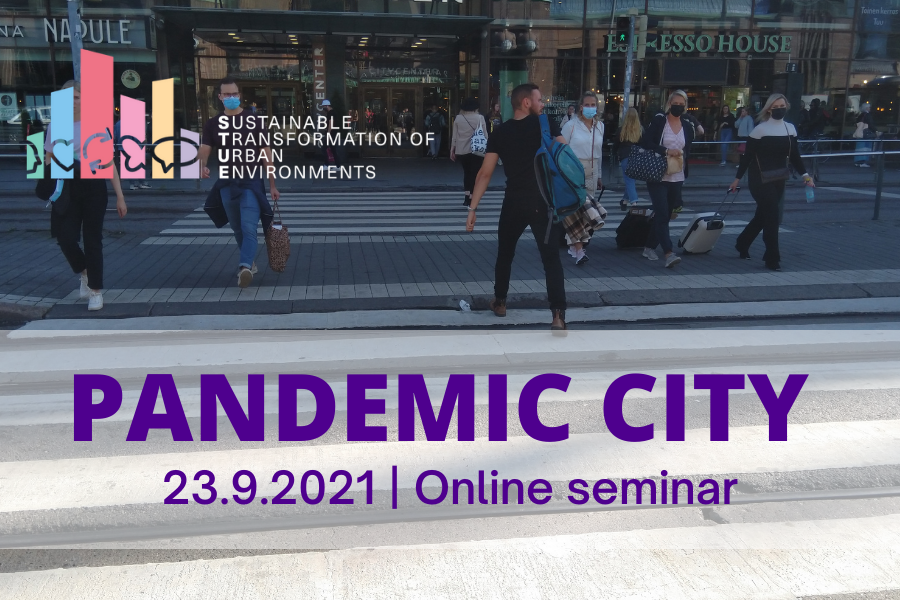The COVID pandemic has made us question our current urban sustainability. The issues revolve around safety, the monitoring and combating the pandemic microbes, the density of our urban fabric, the quality of public space, the usability of public transport, the habitability of housing and its relationship with economic, ethnic and gender inequalities, especially in vulnerable neighbourhoods. The pandemic has contested the sustainability of current communities, populations, nations and the environment.
Watch the recording of the seminar on YouTube
Keynotes:
Prof. Colin McFarlane, Dept. of Geography, Durham University, UK
The crowd and Covid-19: spectacle, politics and value in the UK
Deputy Chief Physician Reetta Huttunen, TAYS infectious diseases unit
COVID-19 pandemic in Finland and the Pirkanmaa Hospital District
Short (15min) inspirational talks:
- Prof. Jouni Häkli (pandemic and new forms of mobility control)
-
Dr Georgiana Varna (urban planning after pandemic)
-
Associate prof. Tarja Pitkänen (monitoring pathogens from wastewater)
-
Prof. Turo-Kimmo Lehtonen (preparing for environmental and other wicked crises in cities)
See full programme and register here by Monday 20.9.2021
Colin McFarlane, abstract for the keynote: The Covid-19 pandemic has prompted a public debate on density and crowds in the city. While some initially blamed density for the spread of the virus, others cautioned against those claims. As the pandemic progressed, an imaginary of density-as-pathology gave way to a more nuanced geographical understanding of the urban dimensions of the crisis, focussed on connections, spatial conditions, domestic ‘overcrowding,’ and poverty, as well as concerns around different kinds of crowding. In this presentation, I reflect on the politics of density, and the crowd in particular, in the context of UK cities, and consider some of the possible longer-term consequences.


